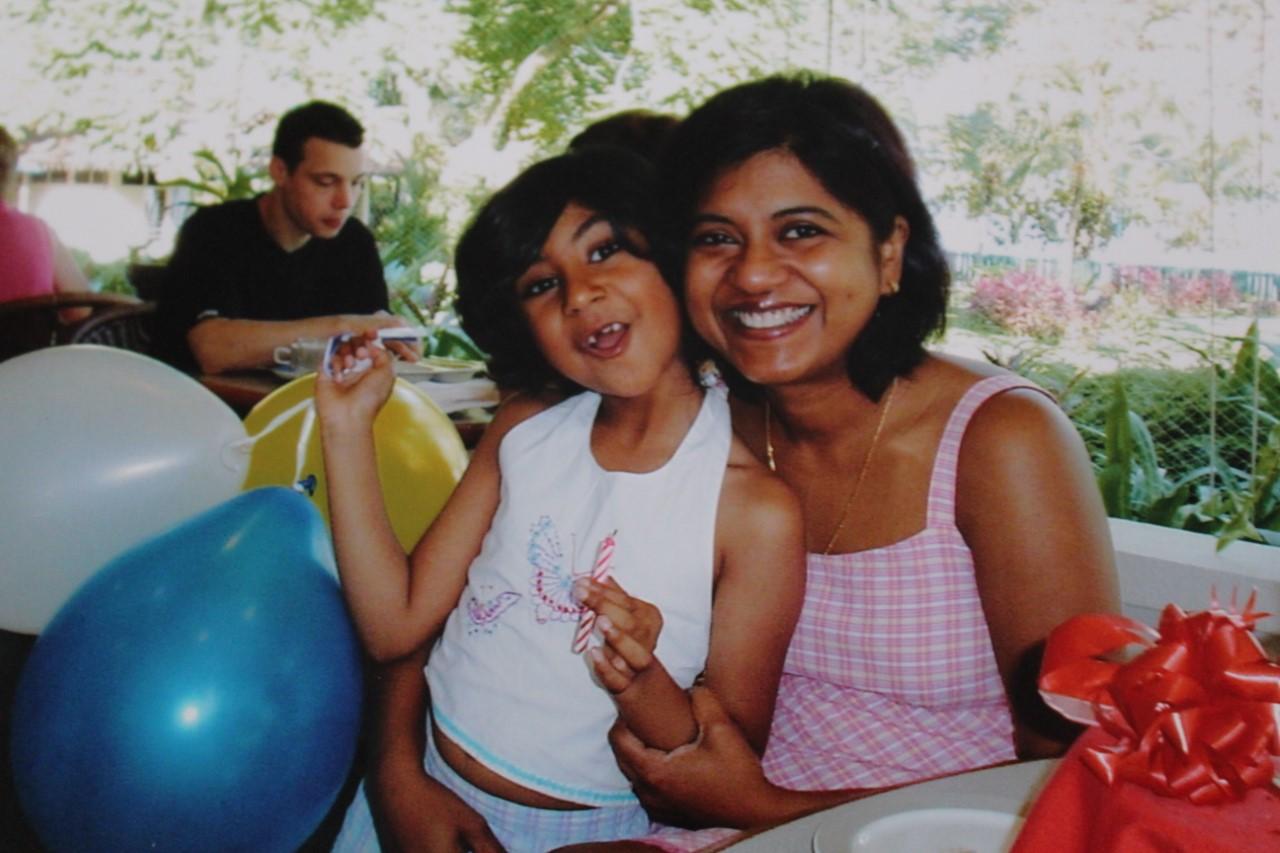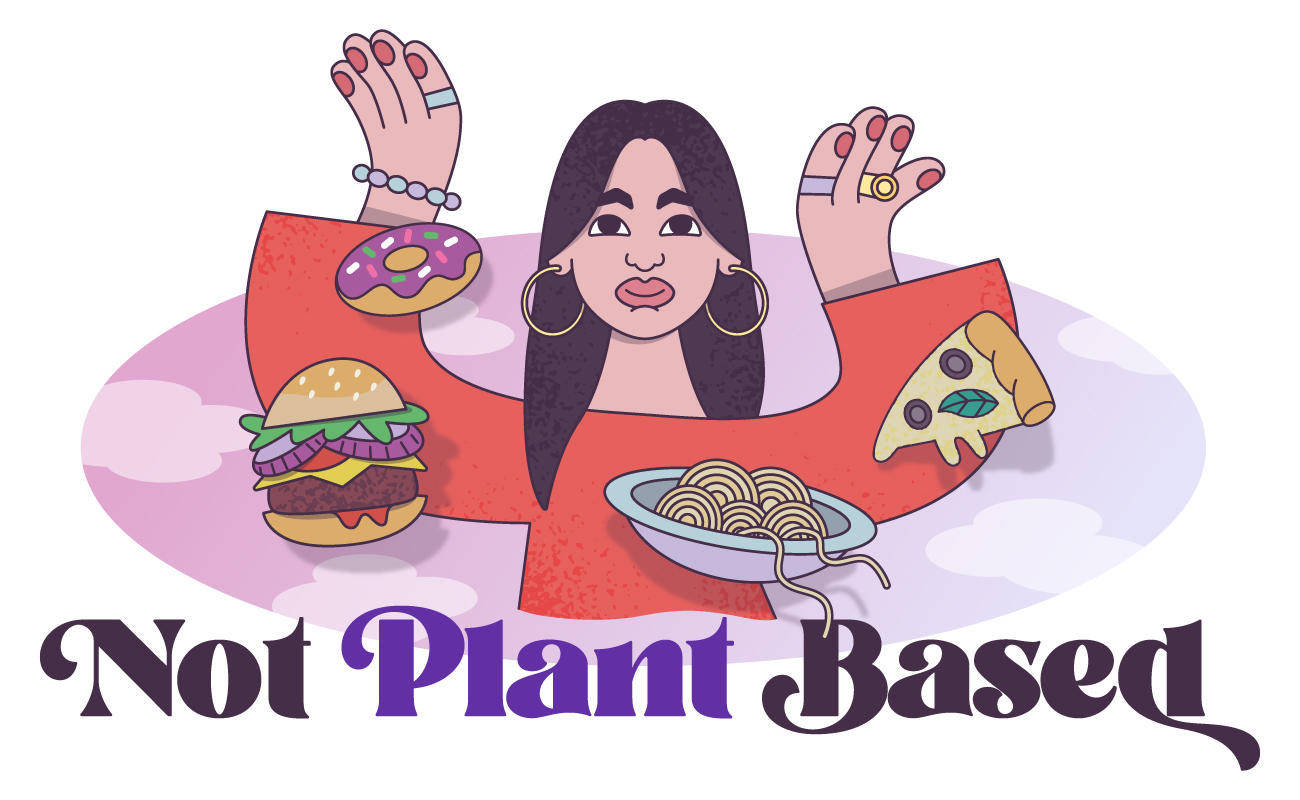
By Sophie Ulhaq
I am a 22-year-old half Tamil and half Rajasthan student who has struggled with disordered eating and body dysmorphia since I was about 12. My Mum’s side is Tamil, originating from the south of India, and my dad’s side is from the north near the desert. Both sides have vastly different approaches to both bodies and food, leaving my appetite in no man’s land for the duration of my adolescence…and beyond.
The women on mum’s side are short and curvy. Growing up, my mum nicknamed me ‘pocket-sized Venus’ because I was thin, but my emerging curves were threatening. Mum was always concerned about how much she ate, often asking me if she was thinner or fatter than random women on the street. Thinking about it, pretty much all the female members of her family were neurotic about food. God forbid you suddenly gained five pounds. Every auntie and cousin would swoop in like vultures to pick apart how got to be so fat. To ward off the alleged curse that supposedly plagued mum’s family, they grew up eating very light small meals consisting mainly of seafood and vegetables. Apparently, our metabolism was such that we’d magically gaining ten pounds after eating a single slice of cake.
The women on my dad’s side however have metabolisms cranked on steroids, all very tall, lean with ‘boyish’- like physiques. Like many in northern India, my dad’s side are ravenous eaters. Breakfast would be huge steaming piles of roti or naan drenched in butter with rich meaty sides and tea filled to the brim with whole milk.
Inevitably, I ended up in the middle of my very conflicting genes. I am 5’4: taller than most of the women on my mum’s side, but shorter than my dad’s side by at least two inches. My metabolism mirrored my dad’s. As a kid, I would devour everything in sight, much to the awe of all the adults around me. Yet, I never seemed to gain much weight and was constantly praised for being skinny. Apparently, my Houdini-esq ability to avoid weight gain was impressive. Sadly, this set of beliefs haunted me into my teenage years.
In the Indian community, we don’t talk about our problems or express love very well. Food is the currency of love and to reject the food that was made for you is to reject the person who cooked it. Saying, ‘thanks but no thanks’ is akin to spitting in their face. While studying psychology I learnt that bulimia was more prevalent than anorexia in Asian and black communities. This made perfect sense to me. You can’t avoid food nor publicly deny it without a screaming match over the dinner table laden with curries that took hours to stew. Restriction is a luxury because avoiding food simply wasn’t possible. Far more realistic is finding a way to get rid of it. In short: you’re expected to eat plenty, but *never* gain weight. Easy! Allow me to illustrate with a pearl of wisdom bestowed upon me from my maternal grandmother.
 Me, now, exhibiting my love affair with baguettes
Me, now, exhibiting my love affair with baguettes
‘A woman should only be fat two times in her life; when she is a baby and when she is pregnant’. So I guess that explains my mother’s complex. Then there’s the added oppression of colourism. Fat and dark is the least acceptable. If you’re dark-skinned and slim, you’ll do. Pale and skinny? You’ve won the genetic lottery, expect to be showered with compliments your healthy appetite and cinched waist. Providing you don’t get too skinny, of course. When I began to restrict my diet and weight loss ensued, aged about 13, I was ridiculed for being sickly looking.
But looks alone aren’t enough, at least in my family. Be slender and smart, but not vain. All the contradictory voices screeching in my head created the perfect mix of ingredients for an eating disorder to bloom. Eventually, I found a way to cheat the system of constantly being handed piles of food soaked in enough oil to power a small motorbike (from my dad’s side, obviously).
As a child, I had always been a straight up and down frame. Suddenly getting hips and a rack threw me. What if I hadn’t inherited the killer metabolism of my dad’s side after-all? It projected me into a full-frontal assault on my growing body. My solution? I tried to starve it away, only to realise fainting on the way to a A-level classes is probably not normal. Growing up in London didn’t make my warped sense of body image any healthier. I was mesmerised by the western images of Kate Moss who I poured over and tried to emulate, only to realise I am never going to fit the western ideal of beauty. I am Indian, for crying out loud.
Then, about a year ago, I attended an event that featured a panel with Eve, Grace Victory and Bodyposipanda. Despite saying they were done taking questions, they let me ask mine. Their answer changed my perspective.
“What do I do if I don’t see my community being represented in media?” I asked, meekly. Almost in unison, they sagely replied: “Then you make it”.
That night, I raced home, opened my laptop and created my own blog. I’ve been beavering away, writing ideas and advice that represents people of colour, ever since. I want to talk about beauty stuff that actually works for us, mental health because god our parents and generations before them are so awful at it, and how on earth to love this body rather than feeling as though I’m renting the thing. Who knows, maybe I can help a 12 year-old out there somewhere who looks like me to just eat the damn cake, and ignore the mass of aunties wagging their fingers at them. The voices of women of colour is too often silenced. Thankfully, we are making progress and I want nothing more than to be a part of that movement.



I am not a “woman of colour” but I fully understand what you’ve been through. The same traditional attitude towards food that you experienced plagues Italians (like me), Greeks, Arabs….I could go on. You claim “Food is the currency of love and to reject the food that was made for you is to reject the person who cooked it. Saying, ‘thanks but no thanks’ is akin to spitting in their face.”
Yep, that’s Italians to you, down to the small cup of espresso or piece of cake they give you when you visit them. They put it in front of you, never assuming that you might not like it, or simply not want it in that moment, or you possibly want tea? (But tea is not offered in Italian houses!). If you refuse, here’s the unmissable assertion: “I see, you’re on a diet”.
My solution? I pretend not to listen. Oh, and I go to my birthplace every two years or less; for maximum two weeks at a time. Otherwise I’d end up eating nothing (it’s a sort of psycho physic rejection).
Wish you all the best.